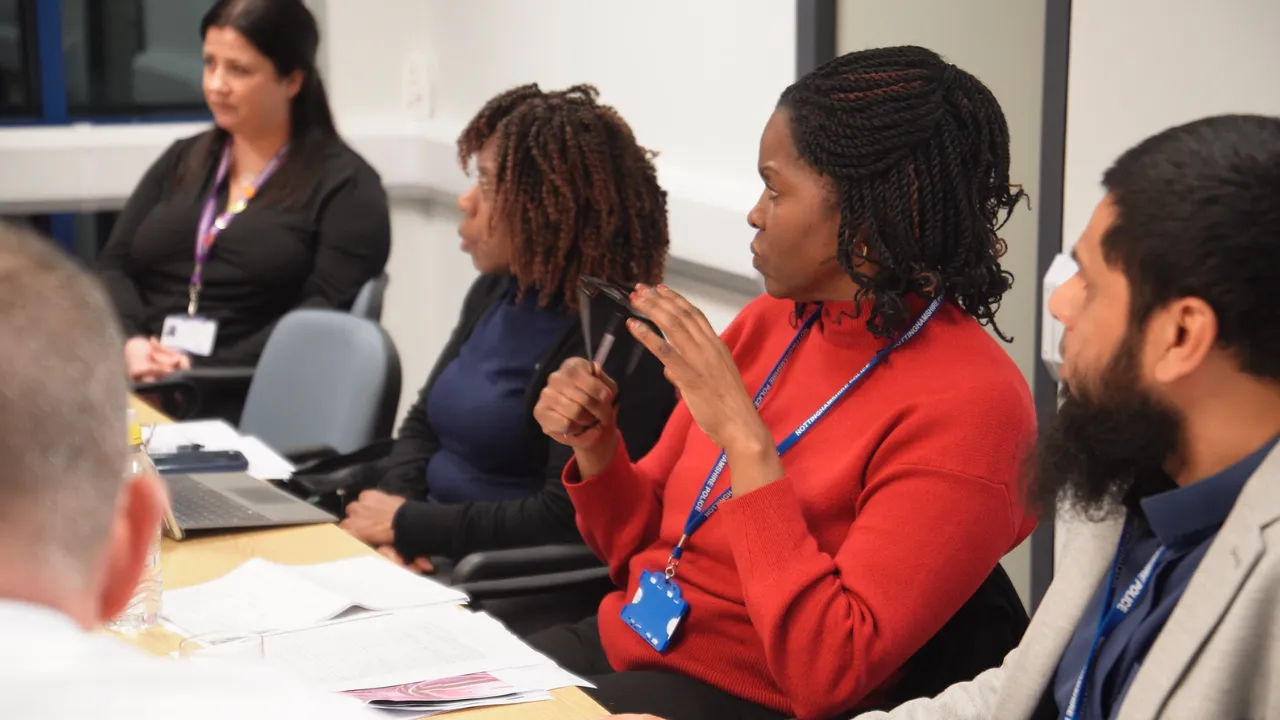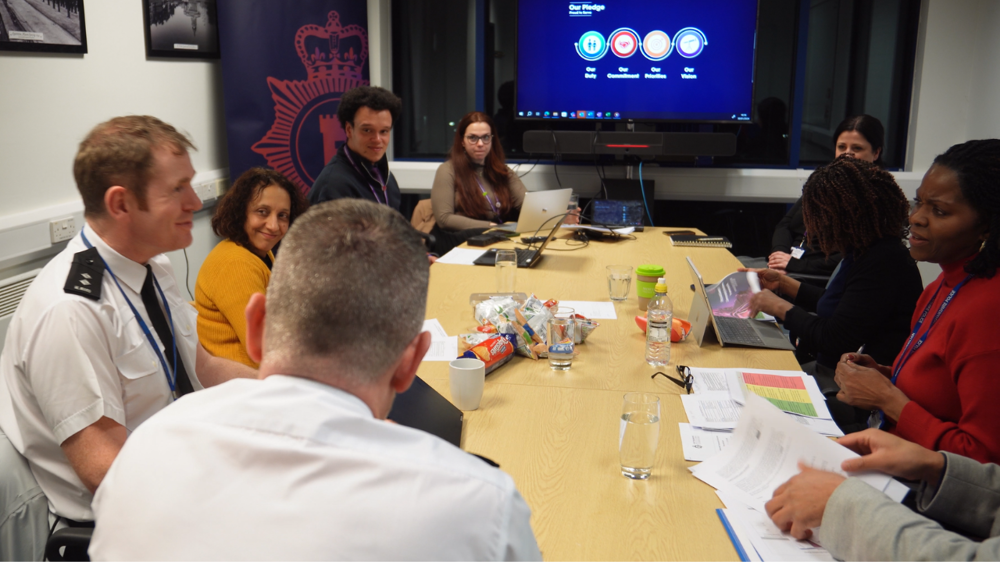
Independent Community Scrutiny Panel
Public scrutiny of police use of powers
Independent Community Scrutiny Panels (ICSPs) allow members of the community to review individual police interactions with the public.
Observations and feedback from community scrutiny panels can help police forces to learn lessons, improve services and ensure greater accountability.
This can support police officers to use their powers more confidently with the backing of the community and also aid public understanding of how and why police powers are used.
The ICSP has been established to scrutinise police practices in order to identify and explain inequalities and disproportionalities at key points in the policing experience of people from ethnic minority backgrounds and to make recommendations addressing such inequalities that cannot be objectively justified.
The scrutineers and Chair bring their knowledge, perspectives, insights and understanding gathered through both their lived experience and professional training and/or academic study.

The Panel is made up of six independent people who either work or live in the Nottinghamshire Police Force area, including a Chair, and have the relevant lived experience and possess the necessary skills and abilities to perform the role as identified in the job description and person specification.
Meetings normally take place four times a year. The Commissioner or Chair may call an additional meeting if they consider it appropriate.
In between the meetings, the scrutineers may conduct investigations or data gathering exercises to fulfil a particular request or priority relevant to policing, discrimination or other ethnic minority experience.
Work programme
The work programme will only cover topics and issues relevant to the role of the Commissioner.
Such topics should focus on matters impacting ethnic minority community trust and confidence with the Police such as:
- Inequalities and disproportionalities at key points in the policing experience of BAME people that cannot be objectively justified.
- Police interaction with ethnic minorities, particularly victims of crime.
- Stop and search (including body worn video and section 60 powers).
- Use of force (including handcuffs and use of Taser).
- Issues of employment discrimination (legal requirements Equality Act 2010)
- Police custody of ethnic minority detainees.
- Handling and types of police discrimination complaints (including sanctions).
- Ethics and integrity issues impacting ethnic minority communities.
- Use of Police coercive powers e.g. fixed penalty notices, prosecutions and other outcomes.
Analytical tools
Panel members will objectively analyse and scrutinise the data to identify any areas of concern. This may include (not an exhaustive list):
- Dip sampling stop and search files.
- Viewing footage from a selection of police body worn video cameras.
- Dip sample of complaints files.
- Dip sample of police custody files.
- Review and analyse of information as directed by the Commissioner’s Equality Group (CEG).
Panel members will question Police and other professional meeting attendees in order to obtain greater insight into any concerns identified.
This level of scrutiny will be undertaken professionally without bias and will be independent of political influence in line with the job description and person specification.
Following the primary meeting, the scrutineers will prepare a report that will be shared with both the Force and the OPCC.
These reports will then be consolidated and refined to create an annual report. This annual report will provide a summary of the work carried out by the Nottinghamshire Independent Community Scrutiny Panel.